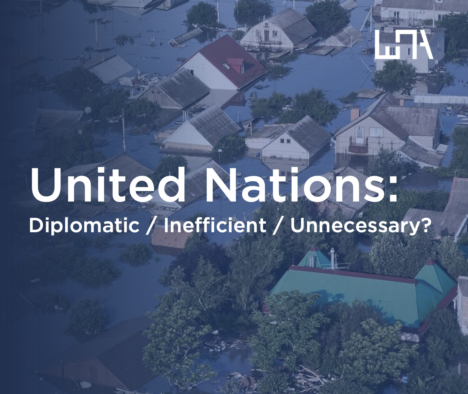Anna Osypchuk, Director for Research, School for Policy Analysis NaUKMA
“The agency (UNICEF) on Wednesday had provided up to 25,000 bottles of water, sanitation supplies, and over 10,000 water purification tablets,” the news report of June 7, the day after the Kakhovka Dam was destroyed by Russian troops, on the UN website reads. From the same report, we also get to know about establishing teams of skilled aid workers at transit and evacuation points (to this end also Olivia Headon, IOM, is cited).
Unfortunately, in light of the astonishing scale of the disaster and the critical situation with the evacuation of people, especially on the left bank, this amount of aid looks, at most, inadequate. It took almost two days for the UN to get involved in the humanitarian effort – and even then, we are talking exclusively about providing fresh water and other supplies on the territories controlled by Ukraine.
Since the beginning of the full-scale invasion on 02/24/2022, the UN, its agencies, and Red Cross have been insisting on their role as mediators and platforms for dialogue and steadfastly maintaining neutrality in their statements and positions of their officials. Precisely this gives us every right to demand from them a much stronger intervention exactly where the Ukrainian authorities, volunteers, and services do not have access – namely to the Russian-occupied territories of the left bank of the Kherson region. The occupying authorities have virtually abandoned people there and not only do not help but prevent their self-evacuation efforts or any assistance from the Ukrainian side. Unfortunately, up until this moment, we see only meek statements and weak appeals from major international organizations to the Russians in this regard, and almost no action.
On the third day after the disaster, June 8, the Ukrainian Foreign Ministry reported that they managed to agree with the UN “to organise groups to provide humanitarian aid and evacuate people in the occupied territories of the Left Bank of the Dnipro if Russia provides access and security guarantees.” On June 18, UN officials reported that “Russia has so far declined requests to help residents of Russian-controlled areas of southern Ukraine impacted by the breach of the Kakhovka dam”. To this, Putin’s press secretary, Dmitry Peskov, commented that Russia couldn’t let the UN mission there as it is not able to provide their security.
The destruction of the Kakhovska Dam once again highlighted the inability of large international organizations to respond quickly and effectively directly in the affected area and where the help is most needed. We see yet another confirmation of their inflexibility and sluggish internal/bureaucratic mechanisms. Also, we see that the aid that is provided often does not correspond to the needs and requests: by and large, there are quite a lot of organizations that can provide fresh water and sanitation supplies in the evacuation points, while very few other than the UN or the Red Cross can even potentially get access to the occupied territories.
The inefficiency of the major international organizations we witness is not what we all have a right to expect from international organizations. Here we see the repetition of what we discussed in our memo in early April last year on the response of the UN and others to a full-scale invasion.

